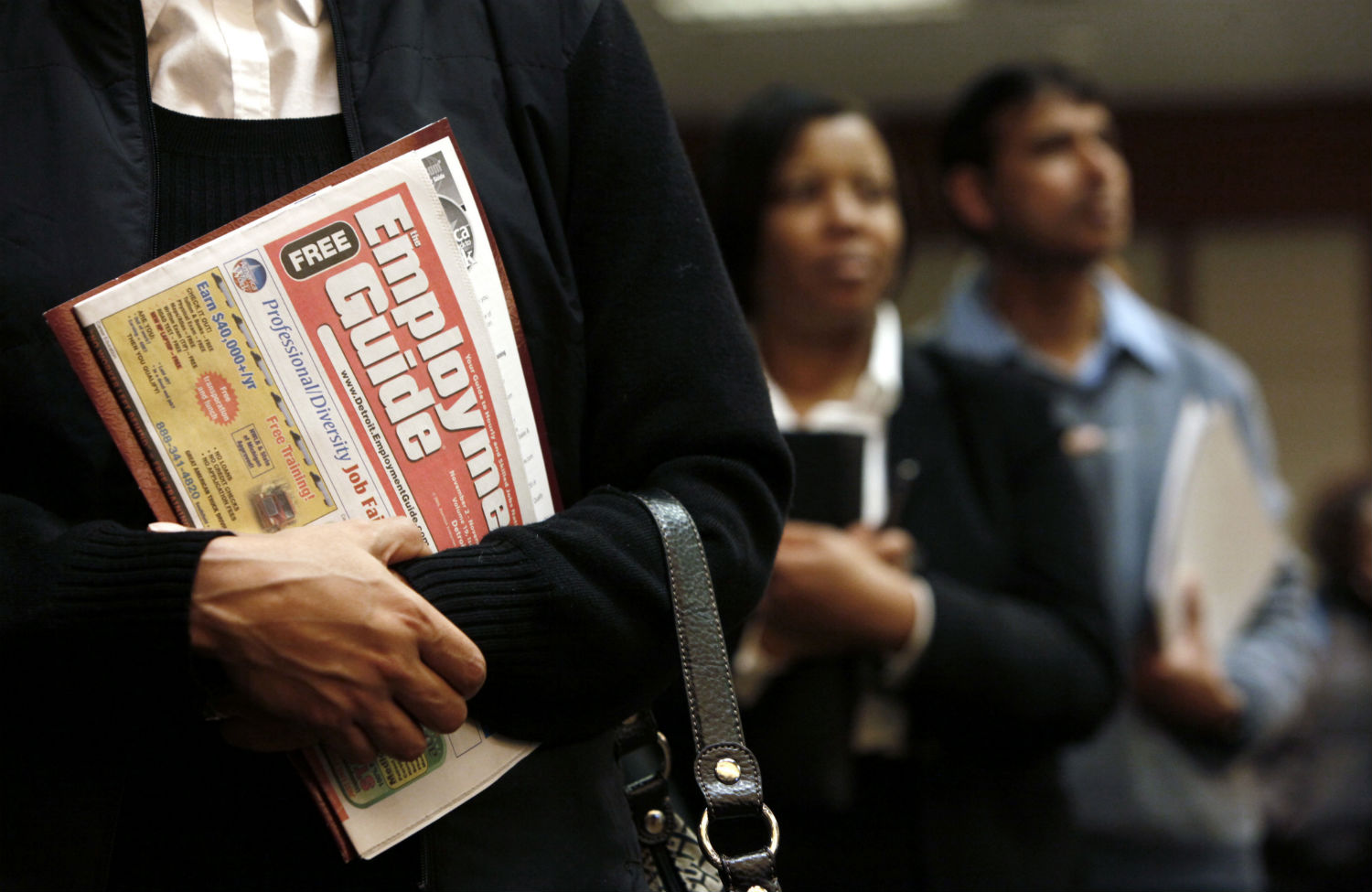
Detroit residents attend a job fair in 2009. Average Americans have lost nearly 40 percent of their wealth. (AP Photo/Paul Sancya.)
Editor’s Note: Each week we cross-post an excerpt from Katrina vanden Heuvel’s column at the WashingtonPost.com. Read the full text of Katrina’s column here.
The media is going sequester 24-7. Anyone who hasn’t been paying attention to the across-the-board spending cuts about to hit this Friday is about to have little choice. The brouhaha about the austerity bomb is drowning out any attention to what is actually going on in the economy—which is supposedly the point of the whole debate.
The stark reality is the economy is still in trouble and Americans are still hurting. The economy contracted last quarter, even before Americans got hit with the end of the payroll tax holiday, which will take $1,000 out of the typical family’s annual paycheck. The Congressional Budget Office projects that growth will inch along at about 1.5 percent this year. That translates into continued mass unemployment—with more than 20 million people in need of full-time work—and falling wages. The richest 1 percent captured an unimaginable 121 percent of all income growth in 2009 and 2010, coming out of the Great Recession. They pocketed all of the growth in income, while 99 percent of Americans actually lost ground. That trend is likely to get worse rather than better.
Federal Reserve Governor Janet L. Yellen described the tragic human costs of widespread, long-term unemployment in an important speech this month. Families lose their homes; divorce and depression rise; children are scarred; skills are lost. A young generation is leaving school to sit on the couch.
Editor’s Note: Each week we cross-post an excerpt from Katrina vanden Heuvel’s column at the WashingtonPost.com. Read the full text of Katrina’s column here.


